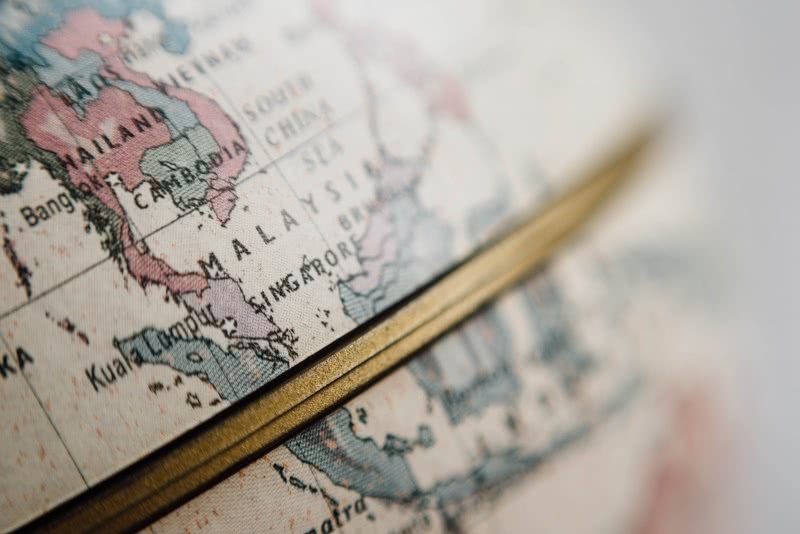MALAYSIA: MALAYSIA’S TRADEMARK BILL 2019

Author: Jessica Sangiumpun, Daniel Greif
Last year, there were significant developments in Malaysia’s Trademark Laws.
Malaysia’s Trademarks Act 2019, which replaced the former Trademarks Act 1976, was passed on 2 July 2019 after its second reading in the lower house of Parliament of Malaysia, and it was tabled and approved at the upper house of Parliament on 23 July 2019. The Trademarks Act 2019 came into force at the beginning of 2020.
The Trademarks Act 2019 allows Malaysia to fulfill its international obligations as a member of ASEAN. Also, the Trademarks Act 2019 will assist Malaysia to develop further economically and increase its competitiveness.
This article addresses the following key changes under the Trademark Act 2019 –
- Multi-Class trademark filing procedure; and
- The recognition of non-traditional trademarks.
Multi-Class Procedure
The Trademark Act 2019 allows Malaysian companies to file multiple class trademark applications, as opposed to the former trademark filing system that only allowed single class trademark applications. The modification to a multiple class trademark application process was necessary to allow Malaysia to accede to the Madrid Protocol, a requirement for Malaysia to fulfill its obligations as a member of the ASEAN Economic Community.
The Madrid Protocol is an international registration system, which provides for the registration and the administration of trademarks in the 122 countries party to the Madrid Protocol.
Malaysia’s accession to the Madrid Protocol allows Malaysian trademark owners to register their trademarks internationally in a cost-effective and efficient manner. Under the Madrid Protocol, trademark owners can file one trademark application with a single fee at the International Bureau of the World Intellectual Property Office. Moreover, the Madrid Protocol allows local Malaysian companies to use a Malaysian trademark application as the base international trademark application, from which the Malaysian companies can then designate additional countries for extending their international trademark application.
Malaysia’s amendments to the Trademark Act 1967 and its accession to the Madrid Protocol will assist Malaysian companies to more easily and efficiently file trademarks abroad. Also, foreign companies seeking to protect their trademarks in Malaysia will be able to designate Malaysia in their international applications. These new opportunities will result in increased trademark filings in Malaysia and in turn have a positive impact on the Malaysian economy.
Non-Traditional Trademarks
Section 2(1) of the Trademark Act 2019 provides a wider definition of what can be considered a trademark. Under the Trademark Act 2019, the word “sign” now includes “any letter, word, name, signature, numeral, device, brand, heading, label, ticket, shape of goods or their packaging, color, sound, scent, hologram, positioning, sequence of motion or any combination thereof”. This new definition incorporates non-conventional trademarks such as scent, sound, shape, colors, holograms, positioning and motion marks, provided that the trademark is capable of:
- being graphically represented; and
- distinguishing goods or services from those of others.
The Trademark Act 2019 addresses the uncertainty that had existed for the registration of shape marks. The new language makes it clear that shape marks, as well as other non-conventional trademarks, can be registered in Malaysia. The revision makes Malaysia trademark law more in line with the trademark laws of many other Asian countries, that also provide for registration and protection of non-conventional trademarks.
It will be interesting to see how the Malaysian Trademark Office and the Malaysian Courts handle non-conventional trademarks in practice. Often when the trademark laws of countries are modified to accept non-conventional trademarks, there is a hesitancy of the trademark offices and the courts to register and accept such trademarks without extensive evidence of secondary meaning. That is, often there is a reluctance to accept non-conventional trademarks as inherently distinctive and there are requirements enacted in practice requiring a strong showing of acquired distinctiveness to register trademarks.
Conclusion
The Trademark Act 2019 brings welcome modifications to the trademark laws of Malaysia that will further the registration and protection of trademarks in Malaysia, as well as allow Malaysian companies to further their trademark rights in other countries. By assisting the furtherance of registrations and protection of trademarks in Malaysia, the Trademark Act 2019 will also have a positive impact on furthering economic progress in Malaysia and the well-being of consumers.
References
https://www.bakermckenzie.com/en/insight/publications/2019/09/malaysia-update-trademarks-bill-2019
http://www.mondaq.com/x/830420/Trademark/Critical+Analysis+Malaysias+Trademarks+Bill+2019
Photo on <a href=”https://foter.com/re5/60e03d”>Foter.com</a>
Contact us


